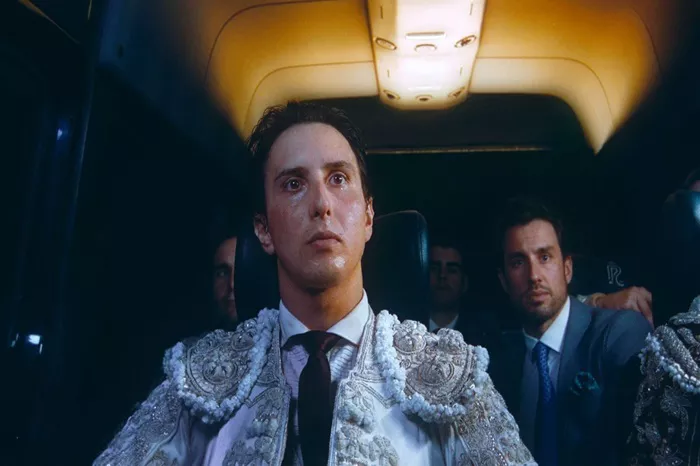In a fiercely competitive festival environment, Albert Serra’s documentary “Afternoons of Solitude” emerged as a standout, securing the prestigious Golden Shell for Best Film at the San Sebastian Film Festival. This film, a bold observational study of contemporary bullfighting, was the sole documentary in the main competition, surpassing high-profile narrative contenders.
The award was presented by last year’s Golden Shell recipient, Spanish filmmaker Jaione Camborda, who led a jury that included directors Ulrich Seidl, Christos Nikou, Fran Kranz, producer Carole Scotta, and Argentine journalist Leila Guerriero.
“Afternoons of Solitude” focuses on Peruvian matador Andrés Rey Roca, presenting an unflinching look at the violence inherent in the sport. The film has sparked controversy in Spain, with the animal-rights party PACMA calling for its removal from the festival. Serra, known for his thought-provoking fiction works like “Pacifiction” and “The Death of Louis XIV,” refrains from overt commentary, yet the film vividly depicts the horror, absurdity, and spectacle of bullfighting.
Critics have lauded the film as “extraordinary,” highlighting its ability to immerse audiences in a disquieting dream state through its use of repetition and sensory detail. “Afternoons of Solitude” is set for its international premiere at the New York Film Festival next week.
Camborda’s jury defied expectations with the presentation of the Special Jury Prize, which is typically awarded to a filmmaker. Instead, it recognized the entire ensemble cast of Gia Coppola’s “The Last Showgirl,” featuring Pamela Anderson in a transformative role as a veteran revue dancer seeking new opportunities after her show closes. Anderson’s acceptance speech was notably brief, filled with heartfelt gratitude.
The jury’s Best Leading Performance award went to Spanish actress Patricia López Arnaiz for her poignant portrayal of a mother supporting her terminally ill ex-husband in Pilar Palomero’s “Glimmers.” The Best Supporting Performance award was given to French actor Pierre Lottin for his role in François Ozon’s “When Fall is Coming,” which also earned the award for Best Screenplay, recognizing Ozon and co-writer Philippe Piazzo’s innovative narrative approach.
Best Director honors were shared by two debut feature filmmakers: Laura Carreira from Portugal for “On Falling,” a socially conscious story about an immigrant warehouse worker in Scotland, and Pedro Martin-Calero from Spain for “The Wailing,” a stylish horror film with broad appeal. Carreira expressed her surprise at winning against established directors, emphasizing the importance of valuing people over profit.
In the New Directors competition, Swiss filmmaker Piet Baumgartner won the top prize for “Bagger Drama,” a poignant exploration of family dynamics affected by tragedy. Baumgartner dedicated his award to those in the queer community who feel out of place but are perfectly valid.
Georgian director Dea Kulumbegashvili, a previous Golden Shell winner, received top honors in the Zabaltegi-Tabakalera competition for her latest film, “April,” an impactful abortion drama. Luis Ortega’s unique comedy “Kill the Jockey” triumphed in the Latin Horizons competition.
The Audience Award for Best Film was awarded to the heartfelt French film “The Marching Band,” directed by Emmanuel Courcol, while the Audience Award for Best European Film went to Iranian director Mohammad Rasoulof’s acclaimed thriller “The Seed of the Sacred Fig,” which has already been submitted for Oscar consideration.
The festival concluded with the awards ceremony prior to the screening of “We Live in Time,” a romance starring Florence Pugh and Andrew Garfield, marking a successful end to an event that began on a more critical note with the release of Audrey Diwan’s “Emmanuelle” remake, which received a lukewarm reception.
Related topic:
How Many Oscars Did Titanic Win?
Which King Kong Movie Is The Best?

